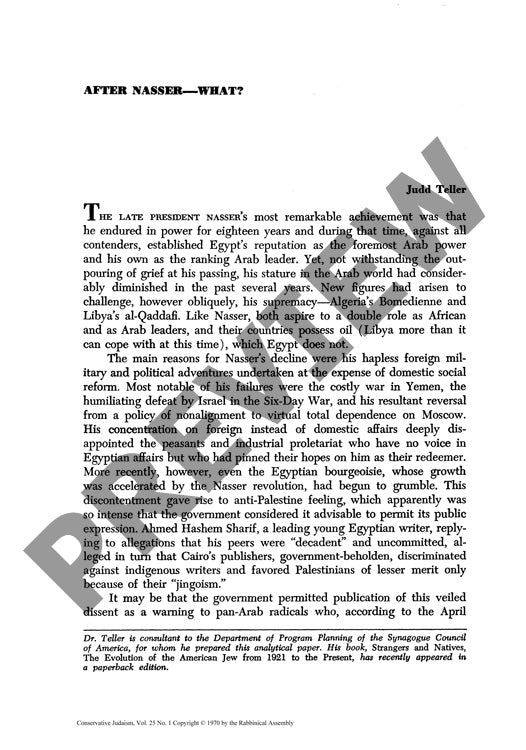After Nasser What
Couldn't load pickup availability
This analytical study examines the political ramifications of President Nasser's death on Egyptian and Middle Eastern politics through qualitative analysis of power dynamics, ideological shifts, and geopolitical realignments. The methodology involves assessment of internal Egyptian factional struggles, Soviet-Arab relations, and regional power competitions following Nasser's eighteen-year rule. The research reveals that while Nasser established Egypt as the foremost Arab power, his influence had significantly diminished due to failed military adventures including the Yemen War and the humiliating defeat in the Six-Day War, which forced Egypt's shift from nonalignment to Soviet dependence. The study finds that Anwar Sadat's immediate appointment as successor represents merely transitional scaffolding for an impending power struggle among rival factions, including Ali Sabri and other contenders with competing ideological orientations toward Soviet collaboration versus Western accommodation. Key findings indicate that the Palestinian guerrilla movement suffered significant setbacks during the Jordanian civil war, potentially opening opportunities for moderate Palestinian-Israeli negotiations, while Soviet influence faces constraints despite substantial military presence in Egypt. The analysis concludes that Nasser's death creates a fluid Middle Eastern situation with diminished prospects for Cairo hegemony, as Algeria and Libya emerge as competing centers of Arab leadership, while American policy coordination with Israel during the Jordan crisis demonstrates the strategic value of firm support for Israeli security in advancing regional stability and peace prospects.

More Information
-
Physical Description
-
Publication Information
Published 1970
ISBN
-
Publication Credits
Judd Teller

